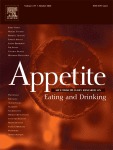A latent class analysis of family eating habits in families with adolescents
Dublin Core
Título
Tema
Abstract
Autor
Fuente
Editor
Fecha
Derechos
Información sobre Derechos de Autor
(Por favor lea este aviso antes de abrir los documentos u objetos)
La legislación uruguaya protege el derecho de autor sobre toda creación literaria, científica o artística, tanto en lo que tiene que ver con sus derechos morales, como en lo referente a los derechos patrimoniales con sujeción a lo establecido por el derecho común y las siguientes leyes (LEY 9.739 DE 17 DE DICIEMBRE DE 1937 SOBRE PROPIEDAD LITERARIA Y ARTISTICA CON LAS MODIFICACIONES INTRODUCIDAS POR LA LEY DE DERECHO DE AUTOR Y DERECHOS CONEXOS No. 17.616 DE 10 DE ENERO DE 2003, LEY 17.805 DE 26 DE AGOSTO DE 2004, LEY 18.046 DE 24 DE OCTUBRE DE 2006)
ADVERTENCIA - La consulta de este documento queda condicionada a la aceptación de las siguientes condiciones de uso: Este documento es únicamente para usos privados enmarcados en actividades de investigación y docencia. No se autoriza su reproducción con fines de lucro. Esta reserva de derechos afecta tanto los datos del documento como a sus contenidos. En la utilización o cita de partes debe indicarse el nombre de la persona autora.
Formato
Idioma
Tipo
Identificador
Document Item Type Metadata
Original Format
- Fecha de agregación
- August 31, 2018
- Colección
- Bibliografía Nacional Química
- Tipo de Elemento
- Document
- Etiquetas
- Adolescentes, Alimentos, Habitos alimenticios
- Citación
- Schnettler, Berta, “A latent class analysis of family eating habits in families with adolescents,” RIQUIM - Repositorio Institucional de la Facultad de Química - UdelaR, accessed July 26, 2024, https://riquim.fq.edu.uy/items/show/5118.
- Archivos

